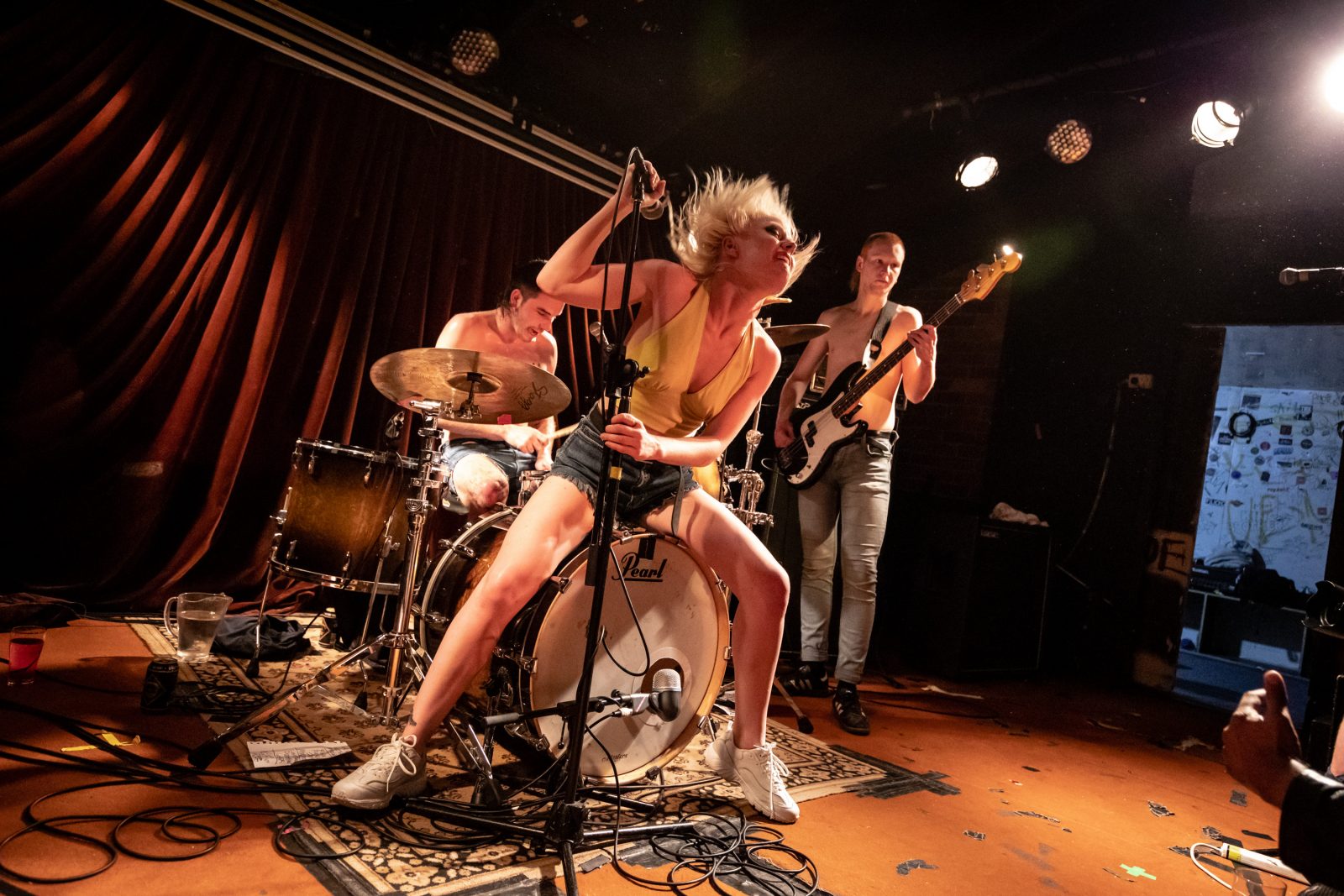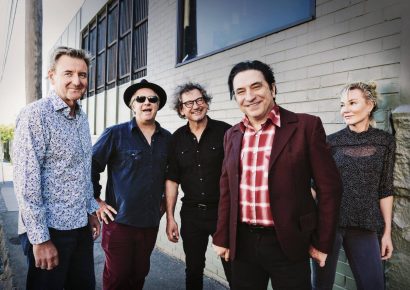We find the silver lining from COVID-19.
Music and travel have long gone hand-in-hand. Whether you’re a band on tour, a roadie loading up the van or a fan following your favourite artist around the country, live music has possessed the ability to transcend borders.
It’s been a way of connecting people from different cities, states and countries, a luxury we’ve often taken for granted. Accustomed to international tours, festivals with diverse, global lineups and bands playing shows from Melbourne to Perth, a world without this freedom of movement has never really crossed our minds.
Until now, when it’s been ripped away from us.
At the time of writing, Australia’s international borders are tightly closed and most states have some sort of restrictions in place. Northern Territory and South Australia both allow visitors from selected states to enter without quarantine, while Tasmania and Western Australia aren’t allowing visitors at all. Queensland is set to refuse travellers from its East Coast counterparts such as New South Wales from August 8, and New South Wales has shut the door on Victoria.
Closing the borders to control the spread of COVID-19 makes sense and it’s working pretty well to manage things in places with low to no cases. However, it’s shaking up the framework for the way a lot of industries operate – including live music.
Granted, some cities aren’t actually hosting gigs right now (looking at you, Melbourne) and if they are, it’s in a restricted format. But nonetheless, shows are stirring up again in COVID-safe capacities and with a lack of interstate and international movement, it’s resulting in a more localised live music landscape. While this means the chances of catching your favourite international muso anytime soon are slim, it does have advantages for our industry here in Australia.
“I think that opportunity begets opportunity,” explains Emily Ulman, programmer for Brunswick Music Festival (BMF) and the driving force behind Isol-Aid.
Well-versed in pooling local talent for BMF lineups, Ulman believes that taking interstate or international artists out of the equation for a while will open new doors for musicians in their home cities.
“The more opportunities there are for local artists, the more local artists will be supported, and I can only see that being a positive thing, in the short term at least,” she says.
“I think that’s a really awesome thing that can come from the pandemic, that more locals are going to be booked rather than programming from further afield. People are going to look in their backyards and we have such a wealth of incredible local talent.”
This is already evident in cities like Perth and Hobart, where pubs and clubs are welcoming homegrown bands back to their stages. Spaces that were previously filled by touring artists from overseas or interstate are now being reclaimed by local musicians, allowing them to connect with home audiences.
At the start of July, West Australian Music’s chief executive Mark Harris told the ABC that while bigger bands were feeling the effect of border closures, it was benefiting the smaller ones.
“The fact there’s only Western Australian music on our stages for the foreseeable future, it’s going to be great for them,” he said, while also expressing concern about getting people back into venues.
Fortunately, the latter wasn’t an issue and the state has been putting on gigs as normal, bar a few social distancing rules and capacity restrictions. Perth even hosted a stadium show on July 18 for around 4,000 people, featuring an all-local lineup with Slumberjack and Crooked Colours.
Examples like this make a solid case for other cities being able to cultivate a thriving scene, even if it’s not part of their usual reputation. Melbourne has long been known as Australia’s live music hub, but while states have their borders closed and focus inward, it’s a chance to reclaim their own narratives and foster a new wave of local talent.
“Different-sized cities will have access to more or fewer bands obviously,” says Ulman. “But when things sort of return to whatever the new normal looks like and venues open up again, my feeling is there’ll be more bands than states have venues.”
It’s not only metro music communities that will benefit from a homegrown focus, with restricted touring a possible boon for rural areas too. Musicians itching to hit the road will be looking at options within their state and that could mean a much-needed boost for rural venues.
For bands like NSW’s Dear Seattle, a regional touring circuit has been on the wish list for a while.
“Rural touring is something we’ve always wanted to do,” says Dear Seattle vocalist Brae Fisher. “If we can’t go into Victoria or Queensland or whatever we’ll start looking to some of those smaller areas, Newcastle, Wollongong and even more rural than that, and still be able to tour that way. I think that would be a huge positive.”
In order to grow a scene in regional areas, there have to be people willing to sow the seeds, and Fisher believes now is a great opportunity for local artists to do that.
“I feel like this is the perfect time to get out there and hire a van and just get out and smash it wherever you can,” he says.
“It’d definitely help to try and focus on it [your local area] as much as possible and build up your own scene there, cause when things do start to kick off, bands are going to be wanting to tour and if they’ve heard about these areas or local scenes that are thriving, they’re going to be on the hit list.”
https://www.instagram.com/p/CDTTcr-BgwG/
Even when state borders do reopen and movement across the country resumes, it’s unlikely international travel will commence again for a while. Festivals like Falls and Laneway might get the green light to go ahead with reduced-capacity and COVID-safe practices, but without the big overseas artists.
Instead, it would provide a chance for Australian musicians to fill headline slots and create space for new talent on festival bills.
“It’s obviously quite an expensive thing and quite a daunting thing as well being a headliner of a festival,” says Fisher. “But I feel like there’s a lot of those mid-tier bands that have just been aching for that chance to show everyone they’re ready for that, so hopefully it does good things for a lot of Aussie bands.”
It does bring the authenticity, originality and variety of lineups into question if all festivals are having to book the same bands, but Ulman believes there are ways around this.
“There is the potential if all the lineups have the same [artists], they start looking a bit similar,” she says. “But, I guess for Brunswick Music Festival for example, drawing from the community in the area is already a huge part of the festival and it will be even more so. I think other festivals will do the same and it might sort of encourage a sharing of acts and sharing of ideas.”
“Having strictly Australian artists at the top of the lineups opens up more spaces for discoverability and emerging artists and I think that’s really exciting.”
If we’ve learnt anything from this pandemic, it should be how important it is to support your local scene. In order to keep venues, artists and each other afloat, we have to show up for our communities, regardless of the state or lockdown situation you’re in. That doesn’t necessarily mean going out to gigs if it’s not safe or feasible, but buying merch, paying for music or donating the price of a pint to your local pub, all help.
We’re lucky enough to have a thriving music industry in Australia, so let’s do what we can to keep it alive.
Never miss a story. Sign up to Beat’s newsletter and you’ll be served fresh music, arts, food and culture stories three times a week.

